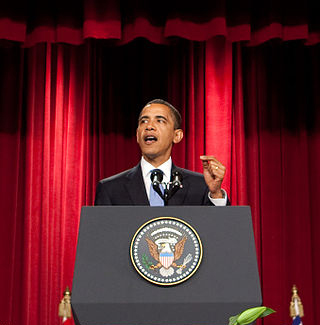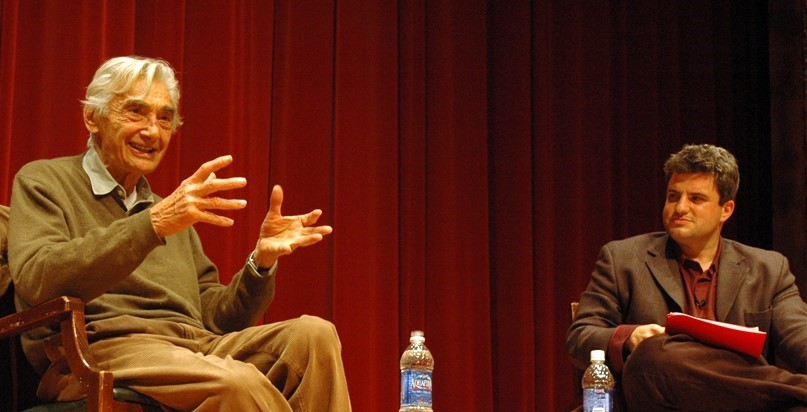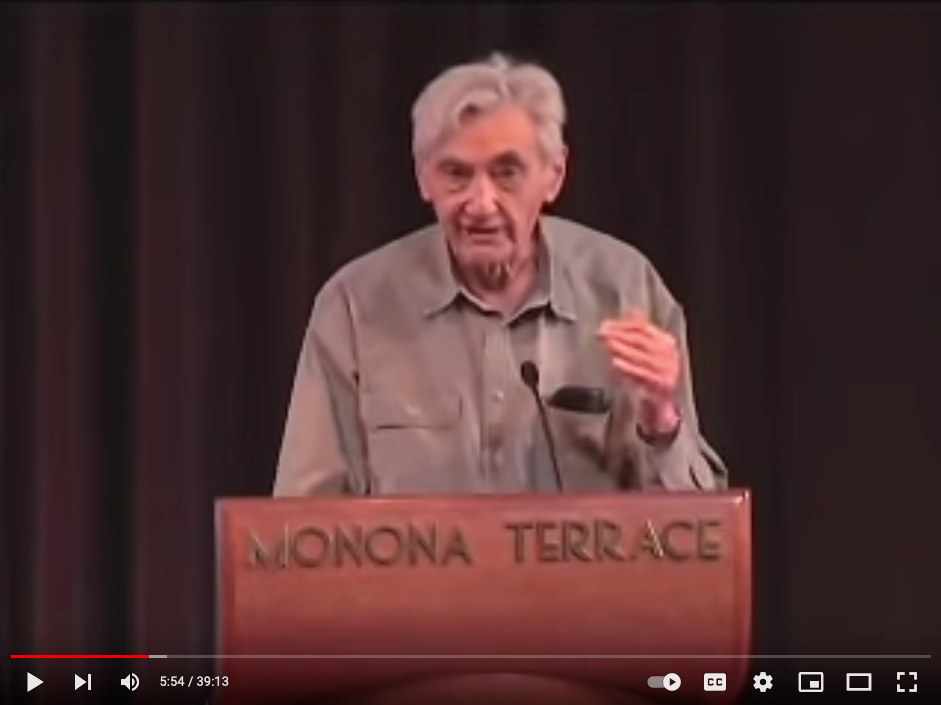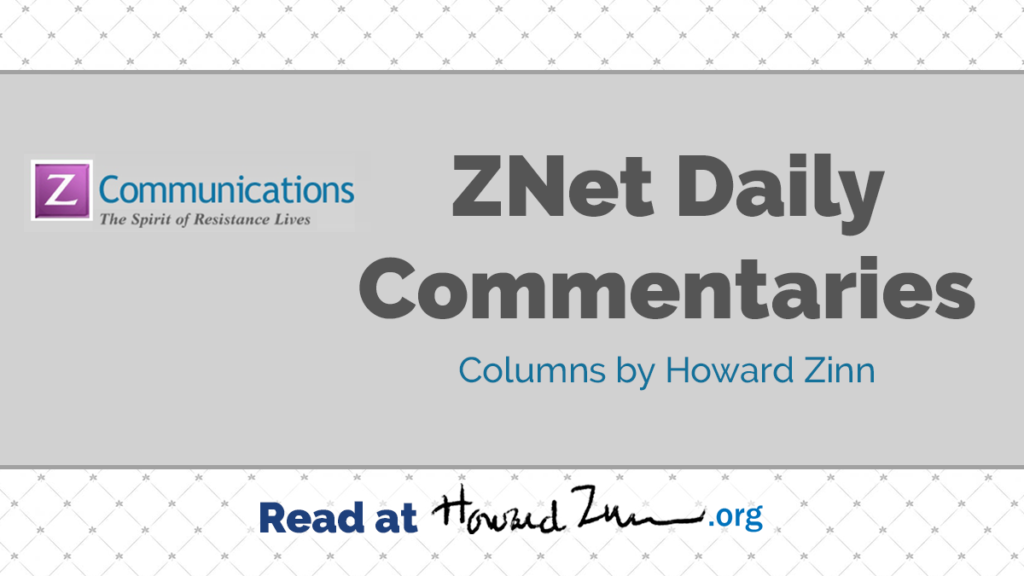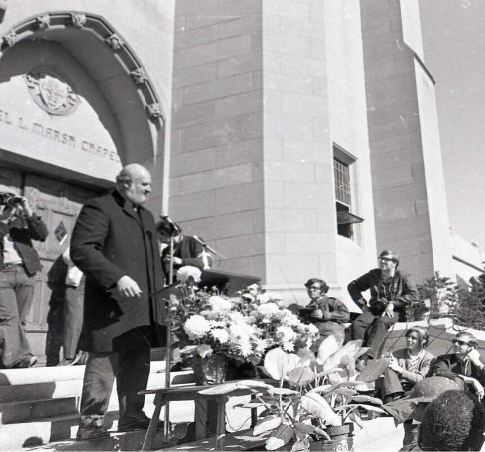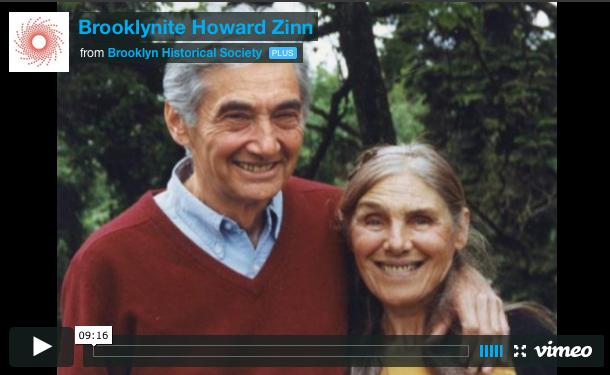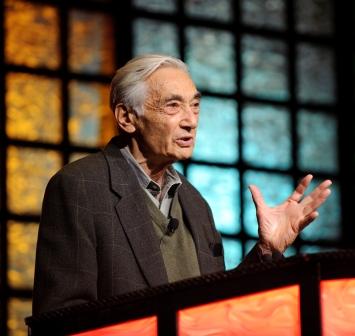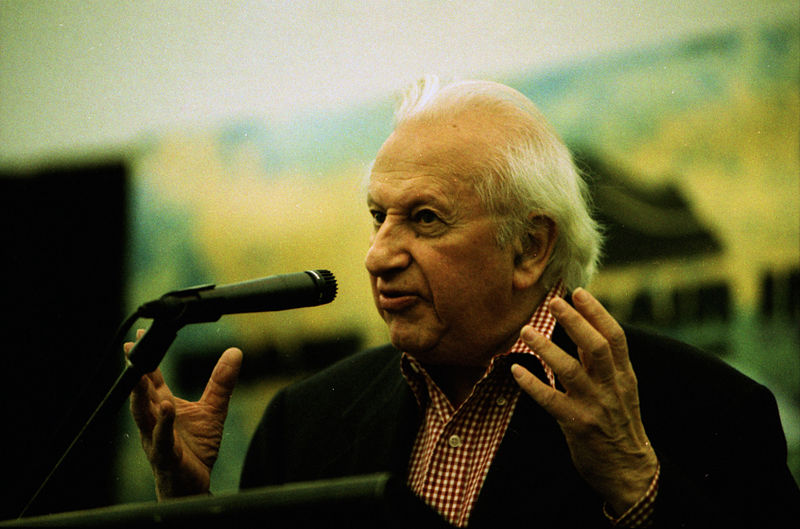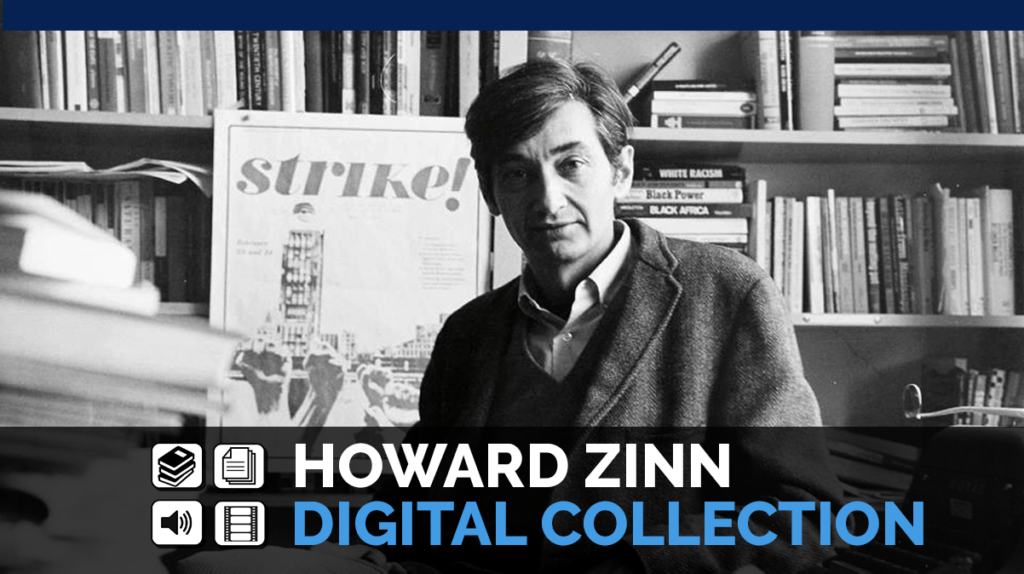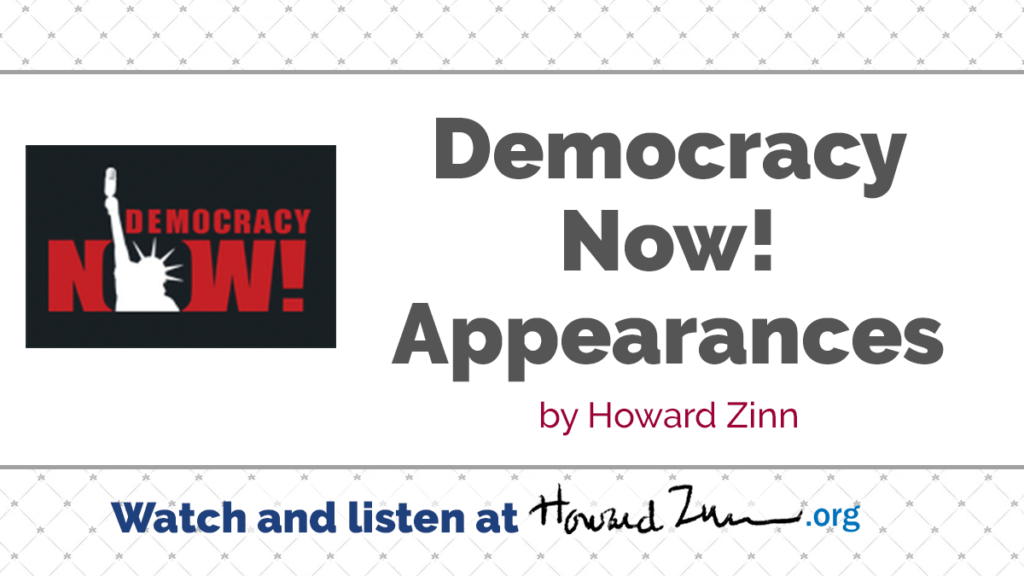
‘I Wish Obama Would Listen to MLK’
Howard Zinn interviewed by Amy Goodman. Democracy Now! May 13, 2009.
Legendary historian Howard Zinn joins us to talk about war, torture and the teaching of history. Zinn says had Obama heeded the lessons of Dr. Martin Luther King, Jr., he wouldn’t be escalating U.S. attacks abroad and increasing the size of the U.S. military budget.
Read More »
Legendary historian Howard Zinn joins us to talk about war, torture and the teaching of history. Zinn says had Obama heeded the lessons of Dr. Martin Luther King, Jr., he wouldn’t be escalating U.S. attacks abroad and increasing the size of the U.S. military budget.

